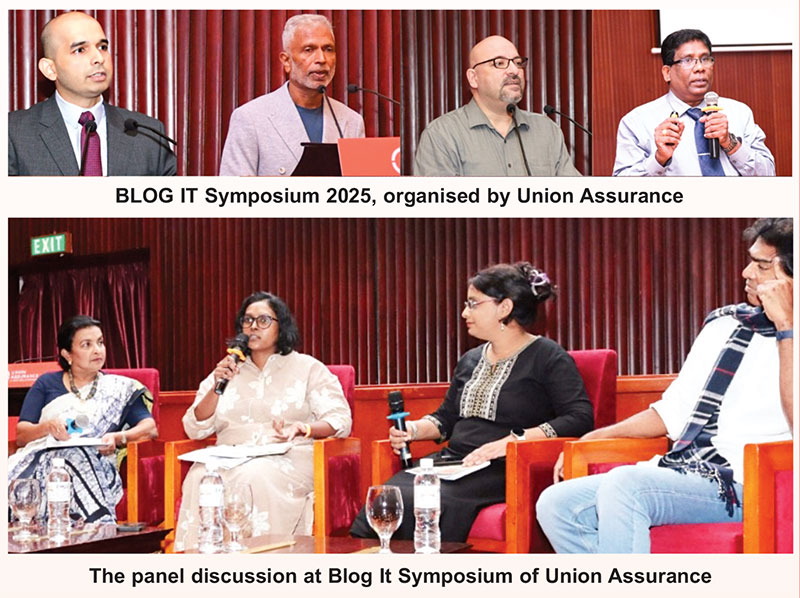Business
Export earnings decline, import expenditure subdued

External Sector Performance – January 2023
The deficit in the merchandise trade account narrowed to US dollars 410 million in January 2023, from US dollars 857 million recorded in January 2022 due to a larger decline in imports, compared to the decline in exports. However, the merchandise trade deficit in January 2023 widened, compared to the deficit of US dollars 358 million recorded in December 2022.
Overall exports: Earnings from merchandise exports declined by 11.3 per cent in January 2023, over January 2022, to US dollars 978 million, continuing the moderation observed since September 2022, though at a slower pace than expected. This decline was observed across all main categories, and the compression of industrial exports was noticeable.
Industrial exports: Earnings from the exports of industrial goods declined in January 2023, compared to January 2022, with the greatest share for the overall decrease being contributed by garments resulted from lower demand in most of the major markets (the USA, the EU and the UK). Meanwhile, earnings from the exports of petroleum products declined due to the decline in volumes of bunker and aviation fuel exports despite higher bunker prices. Further, the declining trend of exports of rubber products (mainly, household rubber gloves) continued, although earnings from gems, diamonds, and jewellery; and machinery and mechanical appliances (mainly, electronic equipment) increased.
Agricultural exports: Earnings from the export of agricultural goods declined in January 2023, compared to a year ago, driven by lower export volumes of fibres and desiccated coconut, categorised under coconut related products. However, earnings from tea exports improved with the higher average export prices of tea amidst low volumes. Volumes of almost all agricultural exports remained at subdued levels in general with the lagged impact of unavailability of adequate fertiliser during 2021/2022.
Mineral exports: Earnings from mineral exports declined in January 2023, compared to January 2022, mainly due to the decline in exports of quartz and natural graphite powder.
Overall imports: Expenditure on merchandise imports remained at subdued levels in January 2023. Accordingly, expenditure on imports declined by 29.2 per cent (y-o-y) to US dollars 1,388 million in January 2023, compared to US dollars 1,959 million recorded in January 2022 and US dollars 1,426 million in December 2022. The decline in expenditure in all sectors contributed to this decline although the decline in intermediate goods contributed the most.
Consumer goods: Expenditure on the importation of consumer goods declined in January 2023, compared to January 2022, due to the decline in both food and non-food consumer goods. Decline in import expenditure on non-food consumer goods was mainly driven by the reduction in the import of medical and pharmaceuticals (due to the base effect of higher expenditure on COVID vaccines in January 2022). Expenditure on food and beverages also declined due to lower cereals and milling industry products (mainly, rice), compared to that of January 2022. (CBSL)
Business
Russell’s Tea partners with Sri Lanka’s indigenous community

Allocates 4% of global sales for their socio-economic empowerment
Sri Lankan tea exporter Russell’s Tea (Pvt) Ltd achieved a historic milestone by signing a Memorandum of Understanding (MOU) to allocate 4% of its international sales revenue from ‘Russell’s Ceylon Ancestral Herbal Infusions’ toward the sustainable development of Sri Lanka’s indigenous community.
The company simultaneously launched five premium tea ranges—Ceylon Health and Wellness Teas, Ceylon Ancestral Herbal Infusions, Ceylon Fine Teas, Ceylon Organic Specialty Teas, and Ceylon Artisan Teas—to the global market, beginning with the UAE.
The MOU, formalizing the 4% revenue pledge, was signed by Russell’s Tea Director Jehan Perera and Vedda leader Uruwarige Wannila Aththo during a ceremony at Colombo’s Amari Hotel on Saturday. This agreement marks the first time the indigenous community will receive dollar-denominated compensation for sharing their ancestral knowledge of herbal remedies, which contributed to the development of Russell’s Ceylon Ancestral Herbal Infusions.
“Our R&D team drew significant inspiration from the Vedda community’s traditional wisdom on natural health benefits,” said Jehan Perera. “We believe it is our responsibility to reciprocate by supporting their socio-economic growth through this initiative.”
He added that the company plans to export the Community’s goods like wild honey in the future, further integrating the community into global markets.
Russell’s Tea has already secured partnerships with major UAE retailers, including the Lulu supermarket chain, with plans to expand across Gulf Cooperation Council (GCC) countries and Europe. All products, targeting luxury and tourism sectors, will be available in leading supermarkets by late June.
Celebrating its 38th anniversary, Russell’s Tea founder Russell Perera reflected on the company’s evolution: “From pioneering Sri Lanka’s corporate outdoor catering service to becoming a forex-earning exporter, this global launch symbolizes our commitment to innovation and national progress,” he said.
By Hiran Senewiratne
Business
Shyam takes helm at Sunshine Holdings as nephew succeeds uncle Vish in leadership transition

Under a Colombo sunset at the Taj Samudra, laughter, applause, and celebratory toasts recently marked the farewell of Vish Govindasamy, who stepped down from his executive role at Sunshine Holdings PLC after 28 years of transformative leadership.
The event, attended by business leaders, Sunshine’s senior team, and industry stakeholders, honoured his legacy as he transitioned to the Non-Executive Deputy Chairman role, while his nephew, Shyam Sathasivam, assumed the Group CEO position—a testament to the family bond steering this corporate evolution.
Sunshine Holdings announced that Govindasamy would continue in advisory capacity to ensure strategic continuity.
Govindasamy’s tenure which began in 1997 as CEO of Watawala Plantations, saw the Group expand into healthcare, consumer goods, renewable energy and dairy, while launching iconic brands such as Zesta, Watawala Tea, and Ran Kahata as well as Healthguard Pharmacy. Under his stewardship, Sunshine forged partnerships with global giants such as Wilmar and SBI Japan, earned recognition among Asia’s Best Workplaces, and championed social impact through the Sunshine Foundation for Good.
Shyam Sathasivam, Govindasamy’s nephew and successor, joined Sunshine in 2005 and has been integral to its recent growth. Having collaborated closely with his uncle for nearly two decades, Shyam emphasised his commitment to upholding the Group’s purpose-driven ethos: “Mr. Govindasamy nurtured a vision that blends business with heart. I am honored to build on this legacy, ensuring we continue to care for all stakeholders,” he stated at the farewell event.
During his address, Govindasamy observed attendees dispersed across the room and humorously underscored his attention to detail by remarking, “I kindly request everyone to assemble closer to the stage—such nuances catch my eye, a testament to my micro-management tendencies.” The lighthearted comment drew laughter while reflecting his reputed dedication to organizational precision.
Then shifting to the matter at hand and reflecting on his journey, Govindasamy acknowledged the Group’s resilience through Sri Lanka’s civil war and economic crises, expressing confidence in his nephew’s leadership: “Sunshine’s future is bright under Shyam. Our shared values and his forward-thinking approach will drive new heights,” he said.
The transition underscores a unique fusion of family trust and corporate strategy, positioning Sunshine Holdings for its next chapter.
By Sanath Nanayakkare
Business
Union Assurance is redefining financial literacy in Sri Lanka

‘Blog It Symposium’
The ‘Blog It Symposium’ hosted by Union Assurance on March 27 at the BMICH, had drawn writers, students and professionals alongside literary giants like Ashok Ferrey. The event was less a corporate gathering and more a cultural movement, symbolising a quiet revolution in Sri Lanka’s journey toward financial empowerment.
Financial literacy, often confined to jargon-filled pamphlets or intimidating technical writeups, has found an unexpected ally in storytelling with Union Assurance’s Blog It initiative, launched years prior, which recognises a universal truth: people connect with stories, not statistics. By inviting bloggers and writers to explore themes like life insurance, savings, and generational wealth through personal narratives, the initiative transforms complex concepts into relatable tales. A mother’s account of securing her child’s education amid economic uncertainty, a young entrepreneur’s journey from debt to stability, or a retiree’s challenges in the rest of his or her life were the seeds of stories that resonated deeply with the writers in the audience especially because they are writing for a society whose financial planning is often overshadowed by day-to-day struggles.
Ashok Ferrey, the keynote speaker asked the audience,” Why do we write? “We write,” he suggested, “to express ourselves in ways that evade the rigid pathways of ordinary consciousness.” Imagine, he said, slipping into a disguise to go to a fancy dress party; that lets you be someone else. Writing, in Ferrey’s vision, operates similarly—it is a costume party for the psyche. “When we write, we shed the constraints of our daylight selves. The keyboard or pen becomes a mirror that reflects not who we are, but who we might invent,” he said.
“These aren’t just blogs,” remarked Lal Medawattegedara, novelist and symposium panelist. “They’re survival guides written in the language of the people.”
Rather than lecturing, Union Assurance has created a platform for dialogue. Winning entries, published in newspapers and shared across social media, turns anonymous writers into local influencers. A gem merchant from Ratnapura, whose blog on gem buying and selling would go viral, encouraging young people in the area to follow suit. A Colombo college student’s poem about her family’s medical debt would inspire a community savings drive. “Financial literacy isn’t about telling people what to do,” said Union Assurance CMO Mahen Gunarathna. “It’s about giving them the tools to write their own futures.”
As the 2025 symposium concluded, the message was clear: financial literacy is not a solo journey but a shared narrative.
In a world where money talks, Union Assurance has mastered a profound lesson: sometimes, the most powerful currency is a story well told. Sri Lankans are not just learning about finances—they’re rewriting their financial destinies with the support of Union Assurance.
By Sanath Nanayakkare
-

 Foreign News7 days ago
Foreign News7 days agoBuddhism’s holiest site erupts in protests over Hindu ‘control’ of shrine
-

 Features5 days ago
Features5 days agoCelebrating 25 Years of Excellence: The Silver Jubilee of SLIIT – PART I
-

 Business3 days ago
Business3 days agoAIA Higher Education Scholarships Programme celebrating 30-year journey
-

 Business5 days ago
Business5 days agoCEB calls for proposals to develop two 50MW wind farm facilities in Mullikulam
-

 Features5 days ago
Features5 days agoNotes from AKD’s Textbook
-

 News2 days ago
News2 days agoGnanasara Thera urged to reveal masterminds behind Easter Sunday terror attacks
-

 Sports1 day ago
Sports1 day agoSri Lanka’s eternal search for the elusive all-rounder
-

 News1 day ago
News1 day agoComBank crowned Global Finance Best SME Bank in Sri Lanka for 3rd successive year











